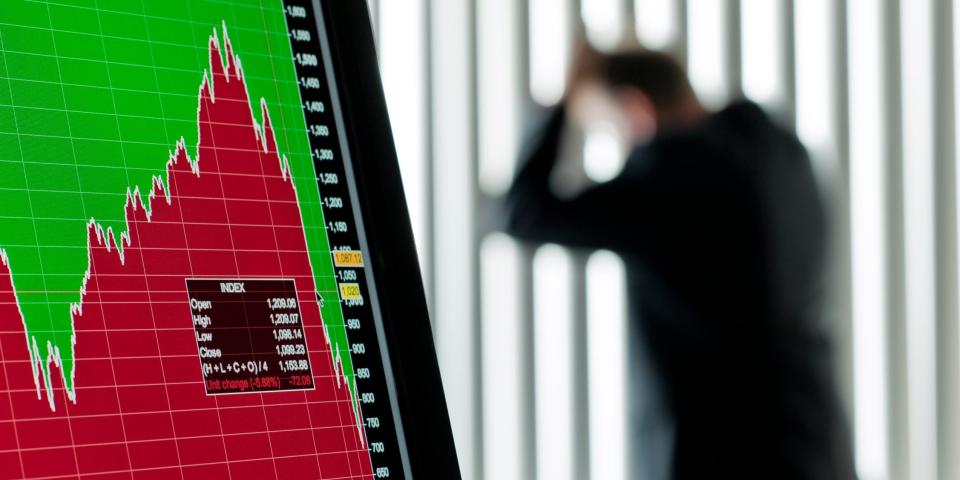The stock market is in a ‘cluster of woe’ that risks seeing steep, abrupt losses, investor who called the 2008 crash says

-
Stock market conditions are among the worst in history, markets guru John Hussman said.
-
The market risks seeing sudden steep declines similar to other periods of weakness like 1987 and 2000.
-
A stock market drop as steep as 65% wouldn’t be surprising, Hussman said.
Conditions in the stock market are among the worst in history, and investors risk seeing steep declines in line with other extreme sell-offs, veteran investor John Hussman wrote in a note this month.
The Hussman Investment Trust president — who predicted the 2000 and 2008 market downturns — warned investors of another fallout coming for stocks. That’s because the market is in what he described as a “Cluster of Woe,” and money-making conditions are among the worst in history, he warned.
Stocks appear the most overvalued since 2021 and since the five weeks surrounding the turn of the new year in 1929, Hussman said, citing his investment firm’s “most reliable valuation measures.”
If equities were to move any higher, internal fundamentals in the market are likely to shift to unfavorable conditions like those that preceded “the most extreme losses” in the market since 2007.
“We estimate that current market conditions now ‘cluster’ among the worst 0.1% instances in history — more similar to major market peaks and dissimilar to major market lows than 99.9% of all post-war periods,” Hussman said in a recent note.
Other “similarly extreme instances,” which include the 2000 dot-com bubble, have typically been followed by an “abrupt” drop in the stock market, Hussman said. Those losses have ranged between 10%-30%, which have stretched on over the course of six to 10 weeks.
Losses could be even steeper this time, given the stock market’s condition, Hussman added.
“Without making forecasts, it’s fair to say that we would not be surprised by a near-term market loss on the order of 10% or more in the S&P 500, nor would we be surprised by a full-cycle market loss on the order to 50-65%, nor a US recession that the consensus seems to have ruled out.”
After a tepid start to the year, stocks are back in rally mode, with the S&P 500 gaining 4% year-to-date as investors raise their hopes for a soft landing and price in rate steep cuts from the Federal Reserve.
But the optimism around rate cuts could soon fall off, some analysts warn, as investors are likely overpricing the amount of monetary policy easing to come this year. Central bankers have only forecast three cuts in 2024, about half the amount markets are expecting, according to the CME FedWatch tool.
Meanwhile, it isn’t the case that a recession is off the table this year. The US has a 61% chance of tipping into a downturn by January 2025, the New York Fed estimates, though market analysts are increasingly calling for a n0-landing scenario that will see the economy going strong for the foreseeable future.
“My impression is that investors feel an almost excruciating ‘fear of missing out’ amid nominal record highs in the S&P 500 and Nasdaq 100, enthusiasm about an economic ‘soft landing,’ and an expected ‘pivot’ to lowering interest rates,” Hussman said. “In my view, abandoning systematic investment discipline amid the most extreme market conditions in history would be a costly way to buy a fleeting sign of relief.”
Hussman has long warned of a coming recession and a major correction coming for stocks. Previously, he predicted the S&P 500 could crash as much as 63% as the bubble in equities deflates.
Read the original article on Business Insider

